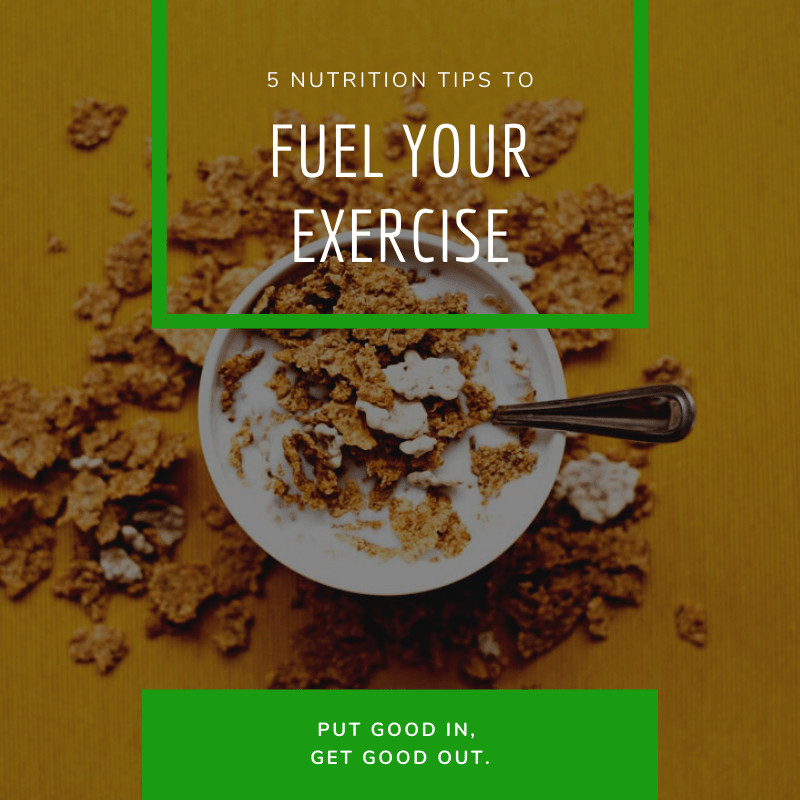I still remember my High School health teacher, who had been a division-one track star in college, telling us how he used to eat in his prime running days.
He was running a 4:15 mile. You don’t have to know anything about running to understand that that is incredibly fast. And he told us that he would eat a whole package of Oreos after almost every workout.
Twenty or so years after that, he’s still running sub-five minute miles, but he eats an all-natural, all-organic, almost entirely zero-sugar diet. And this no-sugar thing includes naturally occurring sugars – he doesn’t eat carrots or apples all too often.
Someone asked the question that was on all of our minds – do you think you could have been faster in college if you ate the way you do now? And the answer he gave, without any hesitation, was yes.
Put good in, get good out. Food is fuel for our bodies. If we give ourselves the fuel nature wanted us to have, we will perform at higher levels, period.
Regardless of the type of athlete you are, whether you are on a team, are more cardio-focused, or just love the gym, eating better will help you work out better.
It will help you build muscle faster. And, it will also help you feel better. Healthy is always good. Here are a few nutritional tips that will definitely fuel your workouts.
Tip #1 – Don’t Forget to Drink
You’ve probably heard before that hydration is key. Well, it’s true. Staying hydrated both before, during, and after a workout is absolutely imperative to your health.
Water is the best way to stay hydrated at all stages, but, if you are working out for longer than sixty minutes (that goes for any triathletes, marathoners, or century-level cyclists) you should be consuming a sports drink.
There are tons of brands that make sports drinks – they generally come in a powder that you mix with water. The whole point of this is hydration, yes, but also to replenish lost electrolytes.
In terms of the quantities you should be drinking, the American College of Sports and Medicine recommends 2-3 cups of water 2-3 hours before a workout, ½ cup of water every 15-20 minutes while working out, and 2-3 cups of water for every pound you lost during the workout.
Tip #2 – Carbo-load
Carbohydrates are an athlete’s main source of fuel. Carbs are converted into glucose and stored in your muscles as glycogen, where they are then burned the harder and longer you work out.
If you have a particularly big workout coming – a triathlon, a half or full marathon, in other words, something much more intense than your average hour at the gym, you should spend days leading up to the big day consuming high levels of carbs.
Pasta, bread, cereal, fruits, and veggies are all good carb sources. Make sure to replenish carb levels after your workout as well. And even if you don’t have a big race, having a diet loaded with good levels of carbs will keep your muscles fueled to perform at their best.
Tip #3 – Protein

Protein, while not essential for energy levels, is essential for muscle growth. It is best consumed naturally – through food like chicken and beans.
You should definitely be consuming high levels of lean, healthy protein daily. And, if you feel you need an added boost, look into protein powder. There are a number of types, including whey, casein, and 100% vegan (protein derived from hemp and peas).
Keep in mind, the recommended protein consumption is .8-1.5 grams per pound. Whichever method you choose, make sure you’re getting enough protein if you want to see results. Here is the best muscle gain supplement for your muscle growth.
Tip #4 – Don’t Exercise on an Empty Stomach

I’ve been there before. You wake up early to work out, you just want to get it out of the way, so maybe you skip that quick snack and just bang out your workout.
This is never a good thing to do. If you want to perform at your best, you can’t perform on an empty tank. You should eat a snack at least a half-hour before you start your workout.
Good options here include a small bowl of yogurt with peanut butter, or a banana with peanut butter, or a small bowl of oatmeal (you can put peanut butter in this as well).
The thing they all have in common – they are all small meals that are packed with carbs (fuel) and protein (to build muscle). You’ll perform better after you eat.
Tip #5 – Try to Avoid Processed Foods

Take a tip from my High School health teacher. Your body will perform better if it has better fuel. Processed foods are everywhere today, but you can avoid them.
Check out your local farmers’ market and pick up fresh, local (maybe even organic) fruits, vegetables, and meat. Eat the food nature meant for humans to consume – in its most natural, least processed form.
If you keep the majority of your diet centered around natural, unprocessed, whole foods, you will perform and feel better.
If you’re ready to take your training to the next level, these tips are the best place to start. Being a power-eater comes before being a power-lifter.






